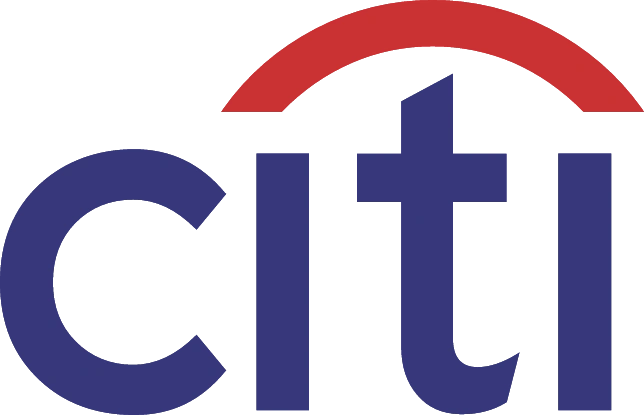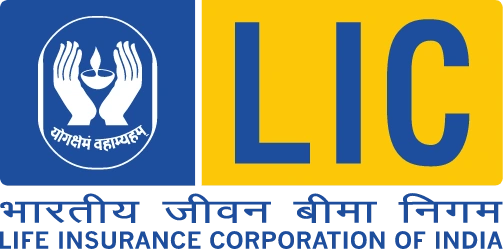Secure your peace of mind today!

Auto Insurance

Pet Insurance

Home Insurance

Health Insurance

Got Your Insurance in Mind? Jump In and Get Started Now!




Health Insurance

Auto Insurance

Pet Insurance
Bringing You Unmatched Value with Leading Insurance Partnerships






















Your confidence in us is our top priority.
I saved $300 on my car insurance in less than 10 minutes with GetInsure!”
– Sarah T., Texas

GetInsure made finding the perfect policy simple and stress-free. Highly satisfied!
– Mark D., California

Quick, easy, and reliable – the best insurance experience I’ve ever had!
– Linda K., Chicago

I was overwhelmed by all the options for life insurance, but GetInsure guided me every step of the way. Now I have peace of mind knowing my family is protected.
– David M., San Diego

Discover Top Articles & Resources Tailored for Your Needs

The choice of the Personal loan lender is significant to make because such a choice will either make or ruin

Personal loans exist in today's American financial landscape in a way by which most get to manage their expenses, get

Looking ahead in the future, purchasing life insurance is a good investment that will grant you peace of mind and

Auto insurance is a necessary expense for anyone who owns or drives a car. It's important to have the right

Auto insurance is one of those necessary expenses that we all have to deal with. We need it to protect
Insurance is a financial product designed to protect individuals, businesses, and assets against unforeseen risks and financial losses. It operates on the principle of risk-sharing, where policyholders pay premiums to an insurance provider, which, in turn, provides compensation or coverage in the event of specific insured events.
Insurance is vital for safeguarding financial stability and ensuring peace of mind. Whether protecting a home, covering medical expenses, or securing a family’s future, insurance acts as a safety net against life’s uncertainties. It not only mitigates risks but also enables individuals and businesses to recover from unexpected situations without devastating financial impacts.
For example, medical emergencies can be financially crippling without health insurance. Similarly, auto insurance helps cover repairs or liability costs after an accident, preventing financial strain. By transferring the risk to an insurer, individuals can focus on their goals without the constant fear of potential setbacks.
Additionally, insurance plays a critical role in fostering economic stability. It supports businesses by reducing financial risks, enabling growth, and protecting against liabilities. For families, it ensures financial continuity and security during challenging times, such as illness, accidents, or the loss of a loved one.

Insurance offers numerous benefits that positively impact individuals, families, and businesses. Here are the key advantages:
1. Financial Protection:
Insurance provides compensation for financial losses caused by accidents, theft, health emergencies, or natural disasters. It prevents individuals from depleting their savings or going into debt during challenging situations.
2. Peace of Mind:
Knowing that you are covered for unexpected events reduces stress and anxiety. This peace of mind allows individuals to focus on their personal and professional lives without the constant worry of financial repercussions.
3. Risk Management:
Insurance transfers risk from the insured to the insurer. This allows businesses to operate confidently and individuals to take calculated risks without the fear of significant financial losses.
4. Savings and Investments:
Many insurance policies, such as life insurance or retirement plans, combine protection with savings or investment components. These policies help individuals build wealth while ensuring financial security for their families.
5. Legal and Financial Compliance:
Some insurance policies, such as auto insurance and workers’ compensation, are mandatory by law. Having these insurances ensures compliance with legal requirements and avoids penalties.
6. Customization:
Insurance services are tailored to meet specific needs. Whether it’s comprehensive health coverage or specialized pet insurance, individuals and businesses can choose policies that align with their unique circumstances.
7. Support in Emergencies:
Insurance provides quick financial assistance during emergencies, ensuring that individuals or businesses can recover quickly and resume normal operations without prolonged disruptions.
8. Tax Benefits:
Certain insurance policies, like health or life insurance, offer tax deductions or exemptions, enabling policyholders to save money while securing their future.

Insurance services cover a wide array of needs, each designed to address specific risks. Here are some of the most common types of insurance services:
1. Auto Insurance:
Auto insurance protects drivers against financial losses due to accidents, theft, or damage to their vehicles. Policies often include liability coverage, collision repair, and uninsured motorist protection. Auto insurance is usually mandatory, providing peace of mind and legal compliance for vehicle owners.
2. Home Insurance:
Home insurance covers property damage and losses due to fires, storms, theft, or other hazards. It often includes personal property protection and liability coverage for accidents that occur on the property. This is essential for homeowners to safeguard their most significant asset.
3. Health Insurance:
Health insurance provides coverage for medical expenses, including doctor visits, hospital stays, medications, and preventive care. By reducing out-of-pocket costs for healthcare, health insurance ensures individuals and families can access quality care without financial burdens.
4. Life Insurance:
Life insurance offers financial protection to beneficiaries in the event of the policyholder’s death. It comes in various forms, such as term life insurance, whole life insurance, and universal life insurance. This ensures family members are financially secure, covering expenses like education, mortgages, or daily living costs.
5. Pet Insurance:
Pet insurance helps cover veterinary expenses for illnesses, accidents, or routine check-ups. It ensures pets receive the necessary care without owners worrying about the high costs of treatments or surgeries, promoting pet health and financial ease for pet owners.
6. Medicare:
Medicare is a federal health insurance program for seniors aged 65 and older and individuals with specific disabilities. It provides coverage for hospital care (Part A), medical services (Part B), and prescription drugs (Part D), ensuring access to affordable healthcare during retirement years.
Conclusion
Insurance is an essential tool for managing risk, protecting assets, and ensuring financial stability. With tailored solutions for different needs—whether it’s auto, health, home, life, or pet insurance—it empowers individuals and businesses to navigate uncertainties confidently. By choosing the right policies, policyholders can enjoy peace of mind and long-term security.

GetInsure is rated 4 out of 5 stars based on 500 reviews!

 What is a Personal Loan?
What is a Personal Loan? A personal loan is an unsecured loan type that allows borrowers to access funds for a wide variety of purposes while not providing such kind of collateral. Secured loans, which depend on the security placed, often refer to such assets as a car or home. Personal loans primarily depend on the creditworthiness of a borrower with their income and history. These loans are generally offered by banks, credit unions, and online lenders. The repayment term can be several months up to several years.
Personal loans may carry fixed or variable interest, although it is most often a fixed interest rate. The monthly payment of such loans is never different as it entails consistent payment terms. Generally, the loan amount can range from $1,000 up to $100,000, depending on the financial condition of the borrower in relation to the institution.
The versatility behind personal loans is an appeal factor. Borrowers can consolidate debt, seek to cover medical costs, fund big life events, and carry out home improvements on their loan options. More importantly, as they do not require collateral, they generally tend to be handy for people who do not have much assets to secure the loan with.
 How Do Personal Loans Work?
How Do Personal Loans Work? A personal loan is an ‘onetime’ loan along with a fixed period of repayment as agreed between the borrower and the lender, which subsequently repays the borrowed money in fixed monthly installments. Here’s a detailed breakdown of how they work:
Application Process
Eligibility Check: A credit score, stable income, and acceptable DTI ratio are some commonly required criteria for borrowers.
Submission of Documents: Applicants will be required to provide identification, proof of income, and financial history to the lender.
Approval: Lenders get to assess the borrower’s creditworthiness, stability in income, and financial obligations to evaluate an approval.
Loan Disbursement
The loan amount is transferred directly to the borrower’s bank account after approval. Some lenders will also allow direct payment to creditors if the loan is for debt consolidation.
Repayment
The borrower pays back the loan in fixed monthly repayment installments, which includes both interest and principal.
The interest rate varies based upon the credit score of the borrower and the loan conditions; however, most personal loans have a fixed interest rate.
Fees and Penalties
There is an origination fee charged by some lenders that ranges between 1% and 8% of the borrowed amount.
Charge for late payment. Some loans have penalty for prepaying the loan borrowed.
What are the reasons to get a personal loan?
 Why Take a Personal Loan?
Why Take a Personal Loan? Personal loans are highly flexible and can be taken for multiple purposes. Therefore, personal loans are preferred among borrowers. The most common reasons include:
High-interest debts such as credit card may be better consolidated into one personal loan with a lower interest rate to ease the burden of paying off multiple debts at high interest rates over time.
Personal loans are a good way to finance improvements on homes, like kitchen remodels, roof replacements, or energy-saving upgrades.
Unforeseen medical costs can be quite daunting. Personal loans help cover healthcare costs that are not reimbursed through health insurance.
Weddings, anniversaries, and other similar events incurred with hefty costs can be funded through personal loans.
Personal loans allow for quick access to funds in case of unforeseen car repairs or travel needs during emergencies.
In cases where small entrepreneurs need a business loan, personal loans can act as an alternative source for funding equipment, inventory, or a marketing campaign.
Personal Loans can address immediate needs through financial flexibility without substantial savings or collateral.
 What Are the Approval Requirements for a Personal Loan?
What Are the Approval Requirements for a Personal Loan? Personal loans require certain criteria for approval. Although the requirements differ, some common factors include:
Satisfying all the above requirements increases one’s chances of being approved and can also be rewarded with better loan terms.
 Can You Use a Personal Loan to Consolidate Debts?
Can You Use a Personal Loan to Consolidate Debts? Without a doubt, personal loans are among the best ways of consolidating debts. Such loans ensure one combines several high-interest debts into a single loan with a low interest rate, thus streamlining monetary management and also minimizing the total amounts paid over time.
How It Works
Assess Existing Debts: Determine the credit card balances, medical bill, and other debts to consolidate.
Apply for a Personal Loan: Select the loan amount that covers the total of the debts.
Payment to Creditors: Some lenders pay all creditors directly, making the process simpler.
One Monthly Payment: Debtors have only one fixed monthly payment, making it easier for the wallet.
Advantages
Lower Interest Rate: Compared to credit cards, personal loans have lower interest charges which will save a lot
Fixed Installments: Payments are made every month in fixed installments; this way one makes it easier to keep track of finances.
Improved Credit Score: Consolidating debts and paying them off regularly can boost credit scores over time.
Discover Top Articles & Resources Tailored for Your Needs

Looking ahead in the future, purchasing life insurance is a good investment that will grant you peace of mind and

Auto insurance is a necessary expense for anyone who owns or drives a car. It's important to have the right

Auto insurance is one of those necessary expenses that we all have to deal with. We need it to protect

Car insurance is a necessary expense for all drivers. However, with so many different types of coverage options available, it

When you finish your high school education, there is no question that you will enroll in college. When a kid
Find, Compare, and Secure Your Ideal Coverage Effortlessly.
© Getinsure. All Rights Reserved.
Terms of Use
Privacy Policy
Cookie Preferences
Unsubscribe
Cookie Preferences
Do not sell my information / CCPA

© Getinsure. All Rights Reserved.